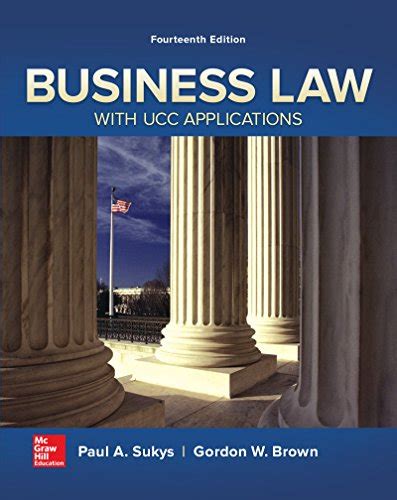Uniform Commercial Code (UCC) applications are a crucial aspect of business law, providing a standardized framework for commercial transactions across the United States. The UCC plays a vital role in facilitating business operations, ensuring that companies can navigate complex transactions with confidence. In this article, we'll delve into the top 5 essential UCC applications in business law, exploring their significance and impact on commercial activities.

What is the Uniform Commercial Code (UCC)?
The Uniform Commercial Code (UCC) is a comprehensive set of laws that govern commercial transactions in the United States. The UCC was first introduced in 1952 and has since undergone several revisions to accommodate the evolving needs of businesses. The code provides a standardized framework for various aspects of commercial law, including sales, leases, and secured transactions.
Key Principles of the UCC
The UCC is based on several key principles, including:
- Freedom of contract: The UCC allows parties to negotiate and agree on the terms of a contract, providing flexibility in commercial transactions.
- Good faith: The UCC requires parties to act in good faith, ensuring that commercial transactions are conducted fairly and honestly.
- Reasonable expectations: The UCC provides guidelines for reasonable expectations in commercial transactions, helping to prevent disputes and ensure smooth operations.
Top 5 Essential UCC Applications in Business Law
1. Sales and Leases
The UCC provides a comprehensive framework for sales and leases, governing the rights and obligations of buyers and sellers. Article 2 of the UCC covers sales, while Article 2A deals with leases.

2. Secured Transactions
The UCC provides a framework for secured transactions, allowing lenders to secure loans with collateral. Article 9 of the UCC governs secured transactions, providing guidelines for the creation, perfection, and enforcement of security interests.

3. Checks and Electronic Funds Transfers
The UCC provides a framework for checks and electronic funds transfers, governing the rights and obligations of parties involved in these transactions. Article 3 of the UCC covers checks, while Article 4A deals with electronic funds transfers.

4. Warehouse Receipts and Bills of Lading
The UCC provides a framework for warehouse receipts and bills of lading, governing the rights and obligations of parties involved in the storage and transportation of goods. Article 7 of the UCC covers warehouse receipts and bills of lading.

5. Investment Securities
The UCC provides a framework for investment securities, governing the rights and obligations of parties involved in the issuance, transfer, and pledge of securities. Article 8 of the UCC covers investment securities.

Gallery of UCC Applications






Frequently Asked Questions
What is the Uniform Commercial Code (UCC)?
+The Uniform Commercial Code (UCC) is a comprehensive set of laws that govern commercial transactions in the United States.
What are the key principles of the UCC?
+The UCC is based on several key principles, including freedom of contract, good faith, and reasonable expectations.
What are the top 5 essential UCC applications in business law?
+The top 5 essential UCC applications in business law are sales and leases, secured transactions, checks and electronic funds transfers, warehouse receipts and bills of lading, and investment securities.
In conclusion, the Uniform Commercial Code (UCC) plays a vital role in facilitating commercial transactions across the United States. The top 5 essential UCC applications in business law – sales and leases, secured transactions, checks and electronic funds transfers, warehouse receipts and bills of lading, and investment securities – provide a standardized framework for various aspects of commercial law. By understanding these applications, businesses can navigate complex transactions with confidence, ensuring smooth operations and minimizing disputes.
